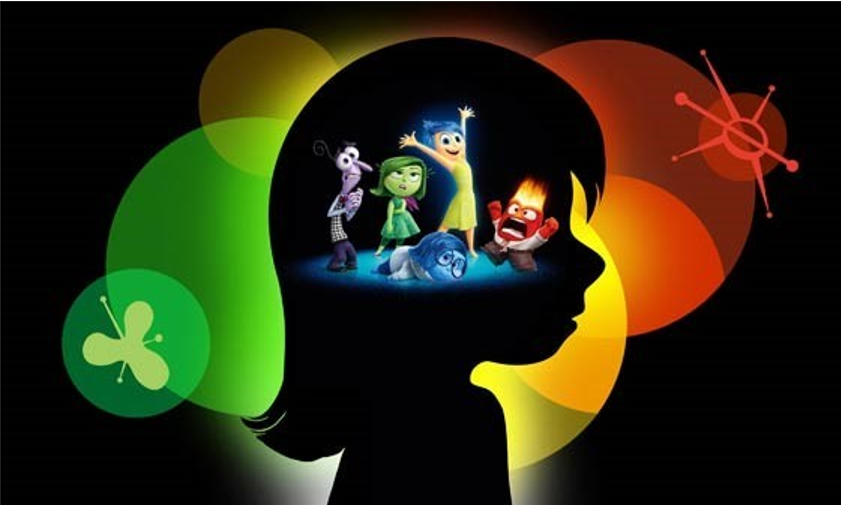
Our minds are powerhouses, capable of amazing feats that many of us don’t fully utilize. Your brainpower is always available to you. You don’t need to look for a magic pill to use it. By knowing proven ways to train your brain for happiness and success, you can unlock its potential. Find out what the main brain functions and superpowers are, and ten activities and lifestyle shifts you can make to enhance them. (Estimated reading time: 9 minutes)
“The brain is like a muscle. When it is in use we feel very good. Understanding is joyous.”
— Carl Sagan
Your mind is a powerhouse. Made up of about 100 billion neurons with roughly one quadrillion (that’s 1 million billion!) connections, it can accomplish amazing feats.
Many of us take its adeptness for granted. We believe we’re limited to the habitual thoughts and emotions we feel every day. Our thoughts seem to fly in and out, and our moods change like the weather.
You’re more in control of your thoughts and feelings than you realize. Your brainpower is always available to you. You don’t need to look for a magic pill to use it.
While decoding the human mind is a large and complex topic, knowing the basics of nurturing a well-fed, rested, and well-exercised brain can work wonders.
Learning about the intricate neural constellations of the brain and what we can to do to optimize its functions can place us way ahead of the pack. Originality, mental acuity, and efficiency sprout from the fertile grounds of a healthy brain.
We can investigate this topic from many angles that range from human anatomy to pseudo-science. In this piece, we’ll look at proven fundamentals that you need to know to train your brain for happiness and success so that you can unlock your potential.
The human brain: our superpower in the animal kingdom

Every species has unique and impressive features that allow it to survive. Some animals can fly, some can swim, and some can climb. Some animals move incredibly fast, while others are slow.
In its infinite intelligence, Nature has coded adaptive features in the DNA of these creatures so they can survive in their unique environments. Humans are no exception.
While we can’t run at lightning speed like a cheetah, soar the skies like an eagle, or live under the crushing pressures of ocean depth like a crustacean, we can invent, iterate, and interact using the power of our brains. We used these abilities to build rockets that fly us to the moon and erect towering skyscrapers as high as a mighty mountain.
Contrary to popular belief, our brain’s superior capacity isn’t due to size. The sperm whale has the biggest brain in the animal kingdom, weighing up to 20 pounds (approx. six times heavier than the average human brain) — larger brains don’t necessarily make a smarter animal.
There are two reasons for this. First, brain structure is a more significant determinant of intelligence than brain size. The human brain is highly folded and has a convoluted cortex. Second, the ratio of brain weight to body weight is an important factor. The more intelligent the species, the higher the ratio. The human ratio is highest at around 1:50.
A brain is a tool that we have been given, not just to survive, but to thrive. When we appreciate the marvelous instrument nature has gifted us, we can unlock our potential and live a life of purpose.
Different mental gears: understanding the six brain functions

According to Allen D. Bragdon and David Gamon, authors of “Building Mental Muscle,” there are six basic human functions. They exist in varying degrees in each of us and often determine where our natural talents lie. For example, engineers are generally stronger in math, while fashion designers are better at visualizing.
We can benefit from knowing and strengthening these six brain functions:
1. Creative visualization: Also known as your visuospatial ability, creative visualization ranges from noticing details to perceiving arrangements of details into patterns, and fitting those patterns in a way that makes sense to you. By knowing how to discern the minutiae, you can envision new creations.
2. Memory and learning: A good memory is essential for developing other mental skills. Memory is the brain’s ability to convert and store an experience to retrieve later. It records words and sensory details with no conscious effort. True learning happens when you can recall information when you need it.
3. Execute planning: The part of our brains called the prefrontal cortex gives us the ability to plan and make goals, as well as take steps to see them through. It’s the most recently evolved part of our brain and supports the types of thinking that require the most conscious practice and effort.
4. Language and math: Our linguistic skills help us learn new languages and prevent the neural networks of our brains from atrophying. Each of us has some degree of mathematical acuity. Even if you believe that you’ve “never been good at math,” you can benefit from making mental calculations to increase your mental alertness.
5. Emotional response: Over the years, neuroscience has shown strong links between the loci of emotional faculties and the neural connection linking emotion to the intellectual part of the brain. This proves that our emotions are intimately connected to our cognitive abilities and our brains’ health and immune system.
6. Social interaction: Recent brain research has shown that our social skills are tied to other measures of intelligence. Even if a person has razor-sharp logical thinking, they may be unable to use that to engage in pleasant and productive social interactions. That’s why social interaction is now considered an essential part of maintaining brain health.
As you read this, think about which mental functions you excel at, which ones could be improved, and how you could use them to bolster your skills and performance.
The brain economy: why cognitive abilities have become important
In our current economy, winning ideas and the ability to process lots of information quickly and efficiently will get you much further than sticking with a 9-5 model of making a living.
Author and professor, Cal Newport, believes that there are two core abilities we need to thrive in the new economy:
- The ability to produce at an elite level, both in terms of speed and quality
- The ability to master difficult things
Organizations like the RSA are campaigning for a movement that’s conducive to what they call “The Brain Economy.” In an article from their 2020 Journal issue, they emphasize the importance of governments focusing on brain health:
“Brain capital puts a premium on brain health and brain skills. The former encompasses emotional, behavioral and cognitive health across an individual’s lifespan. Compromised brain health greatly increases the risk of depression, anxiety, substance misuse, dementia, and neurodevelopmental and neurocognitive disorders. As well as potentially devastating consequences for individuals and their loved ones, such disorders are estimated to cost the global economy $2.5tn–$8.5tn per year in lost productivity.”
The four brain superpowers: how to train your brains for happiness and success

When training our own brains, we can take matters into our own hands. The first step is understanding how it operates and mastering these four brain superpowers:
1. Neuroplasticity: Using the capacity of the brain to form and reorganize synaptic connections by learning new things and having new experiences.
2. Brain agility: The ability to switch easily from different modes of thinking, from intuitive to logical, to creative, and to absorb diverse ideas.
3. Mindset mastery: Maximizing our potential by moving from a fixed mindset to a growth mindset. People with fixed mindsets believe that talent and intelligence are fixed. Those with a growth mindset believe they can develop their intelligence and place no limits on themselves.
4. Simplicity: Cultivating simplicity has become a must in our digital and hyperactive age. Given our limited bandwidth, we need to know how to be selective about what we focus on and do our best to reduce distractions and make enough time for rest.
These superpowers can be enhanced by engaging in specific activities and making some lifestyle changes that support the growth and process of our brains.
Here are ten things you can do to train your brain for happiness and success:
1. Do brain exercises and games
Research shows that exercising the brain can improve focus, memory, and daily functionality. Because training the brain is trendy now, plenty of courses, books, apps, and programs offer a framework to make your brain work better and faster.
If you prefer something less structured, games can offer the same benefits. Try playing card games like solitaire and poker, solving a jigsaw or crossword puzzle, and certain types of video games.
2. Use all your senses
There is plenty of evidence to suggest that engaging your five senses can make your brain stronger. The best way to do this is to make a conscious effort to use your sense of sight, sound, smell, taste, and hearing all at the same time, especially in varying environments.. For instance, if you’re having a shower, feel the warmth of the water on your body, notice the mist around you, smell the aroma of soap, and listen to the water splashing against the wall.
3. Engage in creative pursuits and storytelling
Finding outlets to express your creativity is both fun and good for your brain’s health. Whether painting a portrait, playing an instrument, or dabbling in some poetry, you can considerably improve your cognitive function. Be sure not to overwhelm yourself, so pick one activity at a time to devote your time and attention to.
4. Lead a healthy lifestyle
Regular physical activities are an effective brain exercise. By moving your body, your brain must use several functions including problem-solving, memory recall, balance, focus, and attention to detail.
Research shows that blood flow increases everywhere in the body when we exercise, including the brain. More blood means more oxygen and energy, making the brain work better. Add an exercise of your choice that you can practice regularly to your daily routine, whether that be walking, dancing, Tai Chi, or yoga.
Your diet is another important component of your brain health. Consuming a diet with healthy fats such as fish oils, nuts, berries, flaxseed oil, etc., and consuming fewer saturated fats and processed foods have been shown to improve brain performance.
5. Keep learning and trying new things
One of the worst things you can do for your brain health is to stay stuck in a rut and leave no room for novelty and variety in your life. If you find yourself in such a position, it’s time to shake things up.
Something as simple as reading a book, learning a new skill or language, using a different hand to open doors, cooking a new type of cuisine, traveling to a new country or state, or taking a different route to work is enough to stimulate your mind.
6. Tap into your memory more
We live in a time when we store and retrieve everything on our devices — from phone numbers to addresses, and our passwords. To prevent your memory from getting weaker, try relying on it more often.
You could try to memorize all the items on your shopping or to-do list, or try remembering your friend’s phone numbers or your credit card numbers. You could also do memory exercises available in books, apps, and websites.
7. Surround yourself with people who challenge you to grow (in a good way)
To improve your brain, you must be aware of what influences your mind every day, including the people around you. As social beings, we take cues from the people we spend the most time with you. Try spending more time with an intelligent and diverse group of people who stimulate and encourage you to grow.
8. Consume less media
Consuming too much media diminishes your cognitive abilities. Research has shown that the more information we take in, the shallower and more fragmented our thinking gets.
If you want to maximize your focus and ability to absorb and use new information, cut down on TV, social media, and stop the doom scrolling. Preserve your mental bandwidth for activities and projects that matter and impact your future.
9. Make time for stillness and relaxation
Stepping away from the hustle and bustle of life gives your brain downtime to regenerate. Practices like meditation and mindfulness enhance mood, memory, attention, and emotional regulation.
These exercises help you relax and stimulate your brain in interesting ways and boost your brain fitness. You can get similar benefits when practicing deep breathing techniques, listening to calming music, walking in nature, and writing in your journal.
10. Reframe negative thoughts into uplifting and supportive ones
We’re all prone to negative thinking — that’s just how we’re wired. But if it gets excessive and out of control, it can be detrimental to our mental health. The good news is that you can train your brain to be positive by reframing negative thoughts whenever they pop into your mind.
Using simple self-awareness techniques, you can catch these thoughts and practice replacing them with uplifting and supportive ones. For instance, instead of thinking “I’m a failure,” switch that to “I’m a work in progress,” or “failure is just feedback.”
To train your brain for happiness and success is an ongoing practice. Some days will feel easier than others, while some will feel tougher. Be consistent, and your efforts will eventually pay off.
A powerful brain will carry you forward through the gateways of possibility where you’ll realize your potential and be the best version of yourself.
All my best on your journey,
Seline

Question for you: What is your favorite way to train your brain for happiness and success? Why does it work for you?
Did you like this post? Sign up below, and I’ll send you more awesome posts like this every week.

Great content, Thank you
You’re welcome Meschack!